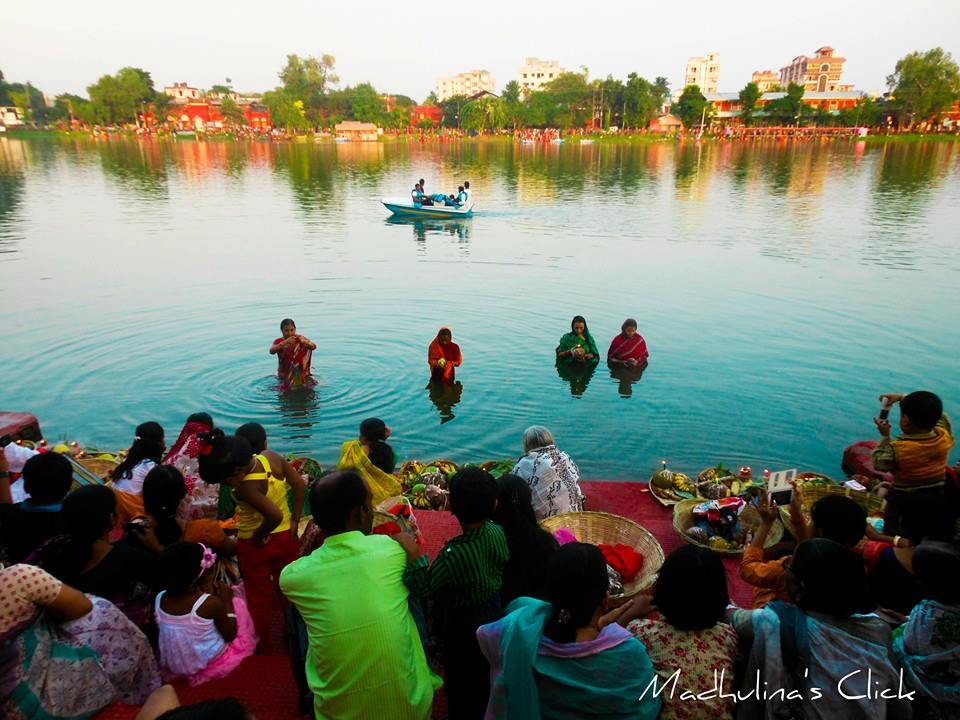Chhath is an ancient Hindu festival, which is joyously celebrated in several states across India. The festival involves worshiping and thanking the Hindu Sun God Surya over a period of four days during which devotees fast. Traditionally, the festival is observed twice a year — once during summer season, six days after Diwali and once again during the winters.
The root of the chhath puja lies in the day it is celebrated. Devotees worship on the sixth day of the month Kartika of the Hindu lunar calendar; chhath denoting the number six in many Indian dialects.
The festival in Bihar came to an end amid fanfare with the devotees offering morning arghya or oblations to the sun god in rivers, ponds and tanks across the state on Thursday.
Lakhs of devotees assembled at the river banks and near other water bodies since the wee hours and waited for the sun to appear at dawn. Fireworks lit the sky as family members of devotees indulged in festivities.
Many devotees had spent the night at the river banks itself to avoid returning home and then coming back to the same spot where they had offered the evening arghya.
As the sun appeared on the horizon, people offered fruits, ‘thekua’ (homemade flour cookies), water, milk and other preparations to the deity and completed the rituals while standing in knee deep water. Afterwards, the devotees broke their two-day long arduous fast by having prasad and water.
Tight security was witnessed at all the river banks with police and paramilitary personnel, as well as, teams of National Disaster Response Force and State Disaster Response Force present in all readiness to thwart any untoward incident.
Over 12 lakh people participated in Chhath rituals along the Ganga in the Patna district. Youth associations and civil society organisations worked continuously since Wednesday to keep the roads, streets and lanes clean and keep them lighted.
As the devotees returned from river ghats and ponds after completing the Chhath rituals, the youth organisations who had helped in making the festive occasion a success demanded prasad as favour and the people obliged them happily.
On the first day devotees take a dip in the holy rivers and carry home the water from the same to prepare the offerings. The house and surroundings are scrupulously cleaned.
The ladies observing the vrata, or fast, are called vratis and allow themselves only one meal on this day.
On the first day, devotees abstain from eating apart from the morning meal until the next day’s evening at which time kheer, chappatis and fruits are consumed.
The third day is called saandhya argha. Those fasting completely abstain from eating anything on this day. The sinking sun is worshiped and given offerings or argha in the evening.
The final day which is called suryoday argha sees devotees giving offerings to and worshiping The final day which is called suryoday argha sees devotees giving offerings to and worshiping the sun as dawn strikes after which devotees break their fast by consuming the chhath prasad







